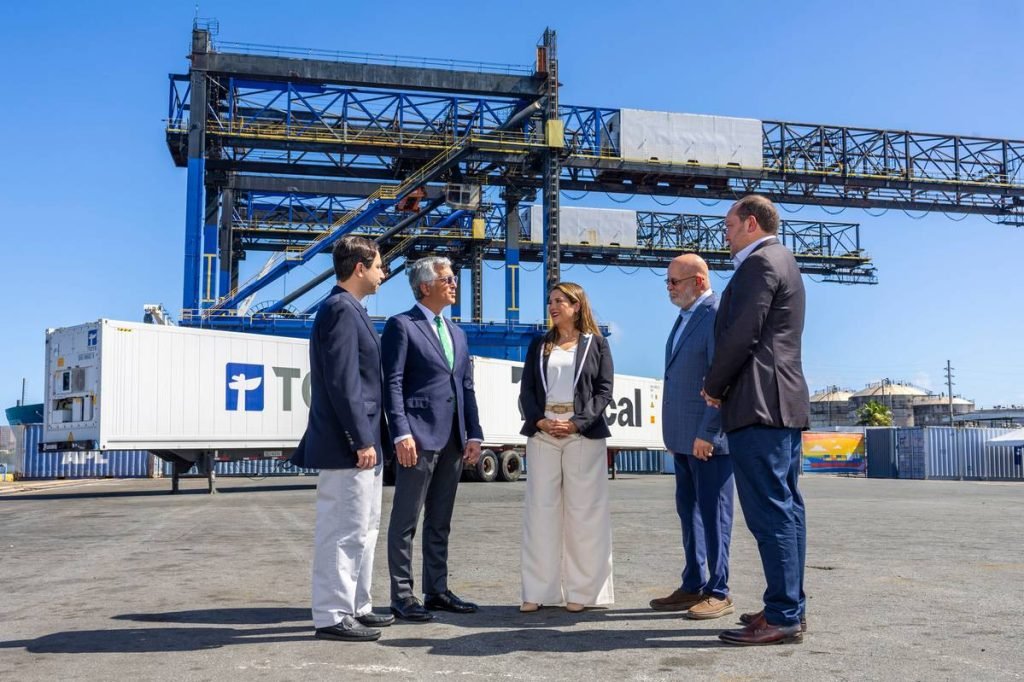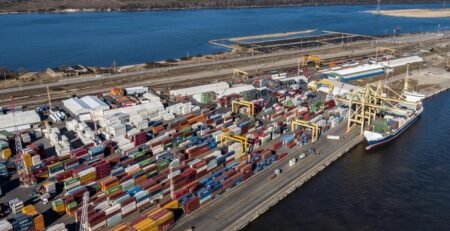BUILDING THE FUTURE: Saltchuk Invests in Logistics Education with New Training Partnerships

By Rayan Amir
March 5, 2025 – The Logistic News
In a strategic move to strengthen the transportation and logistics workforce, Saltchuk has announced two new educational partnerships aimed at developing future industry talent. This initiative will provide students with specialized training in maritime operations, supply chain logistics, and transportation management, ensuring a steady pipeline of skilled professionals for the rapidly evolving logistics sector.
Investing in the Next Generation of Logistics Professionals
Saltchuk’s latest partnerships focus on:
- Providing hands-on training programs for students pursuing careers in maritime logistics.
- Enhancing curriculum development at leading educational institutions to align with industry demands.
- Expanding workforce development initiatives to create career pathways in transportation and logistics.
- Collaborating with regional trade organizations to ensure students gain real-world experience.
A Saltchuk spokesperson told The Logistic News: “By investing in education, we are securing the future of the logistics industry. This partnership will equip students with the skills they need to thrive in a competitive global market.”
Why This Initiative Matters for the Logistics Industry
With global supply chain challenges increasing, companies are recognizing the need for a highly skilled workforce. Saltchuk’s program addresses:
- The growing talent gap in the maritime and freight logistics sectors.
- The rise of digital supply chain management, requiring new skill sets in automation and AI-driven logistics.
- Workforce shortages, ensuring that logistics firms can meet future demands efficiently.
Industry leaders have praised the initiative, emphasizing its long-term impact on the sustainability and innovation of the supply chain workforce.
Challenges in Training the Future Logistics Workforce
Despite the benefits, creating a workforce-ready logistics industry comes with challenges, including:
- Adapting to rapid technological advancements, requiring continuous curriculum updates.
- Bridging the gap between academia and industry, ensuring practical training aligns with real-world needs.
- Encouraging diversity and inclusion, attracting a broader talent pool to the sector.
However, Saltchuk’s commitment to education and industry collaboration positions this initiative as a model for sustainable workforce development.
What’s Next for Saltchuk’s Training Programs?
Looking ahead, Saltchuk plans to:
- Expand partnerships with additional universities and technical schools to broaden program reach.
- Introduce digital training modules, incorporating AI and automation in logistics education.
- Offer industry-sponsored internships, allowing students to gain hands-on experience in global trade operations.
With talent development now a priority for the future of logistics, Saltchuk’s initiative represents a transformative step toward equipping the next generation of professionals with the expertise needed to navigate an evolving global supply chain landscape.
For more exclusive insights on workforce development and logistics innovation, stay connected with The Logistic News.
The post BUILDING THE FUTURE: Saltchuk Invests in Logistics Education with New Training Partnerships appeared first on The Logistic News.
Share this post
Related
Posts
The United States seizes a 7th tanker: pressure mounts on sanctioned ships
New episode in the maritime tug-of-war over sanctions: the United States has seized a seventh tanker suspected of operating in...
China replaces US barrels with Canada: new impact on tanker routes
The geography of oil is shifting, and shipping feels it immediately. According to analyzes reported by BIMCO, Chinese crude oil...
The Port of Klaipėda Signs a Record Year Driven by Containers, LNG, and Ro-Ro
The Lithuanian port of Klaipėda announces a historic performance in 2025: 39 million tons handled, despite a tense geopolitical context...
Ocean Alliance maintains the detour via the Cape, while preparing a “Suez plan”
The Ocean Alliance (CMA CGM, COSCO Shipping, Evergreen, and OOCL) has just unveiled its “Day 10” East-West network, which will...




